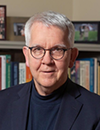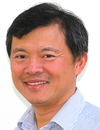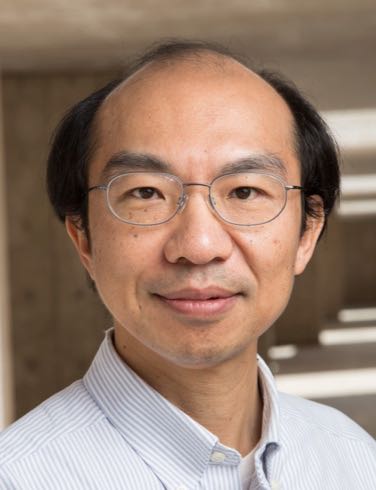| Conferences > RNA-Seq, Single Cell Analysis & Single Molecule Analysis 2017 > Keynote Speakers |
| Register | Login |
Paul BohnArthur J. Schmitt Professor of Chemical and Biomolecular Engineering and Professor of Chemistry and Biochemistry, University of Notre Dame Paul W. Bohn received the B.S. from the University of Notre Dame in 1977 and the Ph.D. from the University of Wisconsin-Madison in 1981, both in Chemistry. After two years at Bell Laboratories, he joined the faculty at the University of Illinois at Urbana-Champaign (UIUC). In 2006, he moved to the University of Notre Dame where he is currently the Arthur J. Schmitt Professor of Chemical and Biomolecular Engineering, Professor of Chemistry and Biochemistry, and Director of the Institute for Precision Health. He served as Editor for the Americas for the RSC journal Analyst 2007-09 and as Chair of the Editorial Board 2010-14. Prof. Bohn is currently co-editor of Annual Review of Analytical Chemistry. His research interests include: (a) integrated nanofluidic and microfluidic chemical measurement strategies for personal monitoring, (b) chemical and biochemical sensing in mass-limited samples, (c) biochemical imaging, and (d) molecular approaches to nanotechnology, areas in which he has over 290 publications and 10 patents. |
Roger LaskenDirector of Single Cell Genomics, J. Craig Venter Institute Professor Lasken leads a single cell genomics program at the J. Craig Venter Institute. His group developed the MDA method (sold as TempliPhi, GenomiPhi and REPLI-g) and was the first to sequence DNA from individual cells. Current work in the lab focuses on RNA-seq from single cells and nuclei (Grindberg, R. V. et al. RNA-sequencing from single nuclei, PNAS, USA, doi:10.1073/pnas.1319700110 (2013); Krishnaswami et al., Using single nuclei for RNA-seq to capture the transcriptome of postmortem neurons, Nature Protocols (2016), vol. 11, No. 3, 499; Lacar, et al. Nuclear RNA-seq of single neurons reveals molecular signatures of activation, Nature Communications (2016) Apr 19;7:11022. doi: 10.1038/ncomms11022. PMID: 27090946. |
Abraham LeeChancellor’s Professor, Biomedical Engineering & Director, Center for Advanced Design & Manufacturing of Integrated Microfluidics, University of California-Irvine Abraham (Abe) P. Lee is Professor of Biomedical Engineering (BME) and Mechanical and Aerospace Engineering (MAE) at the University of California, Irvine (UCI). He is Director of the NSF I/UCRC “Center for Advanced Design & Manufacturing of Integrated Microfluidics” (CADMIM). Dr. Lee served as Editor-in-Chief for the Lab on a Chip journal from 2017 to 2020. Prior to UCI, he was at the National Cancer Institute and was a program manager in the Microsystems Technology Office at DARPA (1999-2001), Senior Technology Advisor at National Cancer Institute (NCI) and a group leader with Lawrence Livermore National Lab (LLNL). Over the years, Dr. Lee has pioneered research in applying microfluidics to biomedical applications, and currently focuses on integrated microfluidic systems for precision medicine including liquid biopsy, microphysiological systems, cell engineering, and immunotherapy. His research has contributed to the founding of several start-up companies. He owns 60 issued US patents and is author of over 130 journals articles. Professor Lee was awarded the 2009 Pioneers of Miniaturization Prize and is an elected fellow of the National Academy of Inventors (NAI), the American Institute of Medical and Biological Engineering (AIMBE), the Royal Society of Chemistry (RSC), the American Society of Mechanical Engineering (ASME), the International Academy of Medical and Biological Engineering, and the Biomedical Engineering Society (BMES). |
Yu-Hwa LoProfessor, University of California San Diego Yuhwa Lo received his PhD in electrical engineering from UC Berkeley. He has been a professor of University of California, San Diego since 1999. He is also the director of the UCSD Nano3 (Nanoscience, Nanoengineering, Nanomedicine) Facility. His research interests include microfluidics, lab on a chip, biosensors, biomedical instrument, biophotonics, nanophotonic and optoelectronic devices. He has around 400 publications and been award 31 patents. He is a fellow of the IEEE and the Optical Society of America. |
John NolanCEO, Cellarcus Biosciences, Inc. Past President of ISAC. ISEV, ISTH Member. Inventor of Cellarcus’ vesicle analysis technologies. Internationally recognized expert in cytometry and vesicle analysis. |
Lydia SohnAlmy C. Maynard and Agnes Offield Maynard Chair in Mechanical Engineering, University of California-Berkeley Lydia L. Sohn received her A.B. (Chemistry and Physics, 1988), M.S. (Physics, 1990), and Ph.D. (Physics, 1992) from Harvard University. She was an NSF/NATO postdoc at Delft University of Technology and a postdoc at AT&T Bell Laboratories (1993-1995). Sohn was an Assistant Professor of Physics at Princeton University prior to joining the Mechanical Engineering Dept. at UC Berkeley in 20013. Her work focuses on developing quantitative techniques to probe single cells. Sohn has received numerous awards including the NSF CAREER, Army of Research Young Investigator Award, DuPont Young Professor Award, and a Bakar Fellowship. In 2014, she was one of five winners in the “Identifying Platform Technologies for Advancing Life Sciences Research” competition for her work on Node-Pore Sensing. Most recently, she was elected a Fellow of the American Institute for Medical and Biological Engineering. |
Sheng ZhongProfessor of Bioengineering, University of California-San Diego Sheng Zhong is professor of bioengineering at the Department of Bioengineering, University of California San Diego. His lab develops new technologies to map molecular networks, including RNA-RNA interactome, RNA-chromatin interactome, and protein-protein interactome. He received NSF CAREER Award, Alfred Sloan Fellowship, and NIH Pioneer Award. He serves as an Associate Editor for PLoS Computational Biology, and the contact PI for NIH 4D Nucleome organizational hub. |




